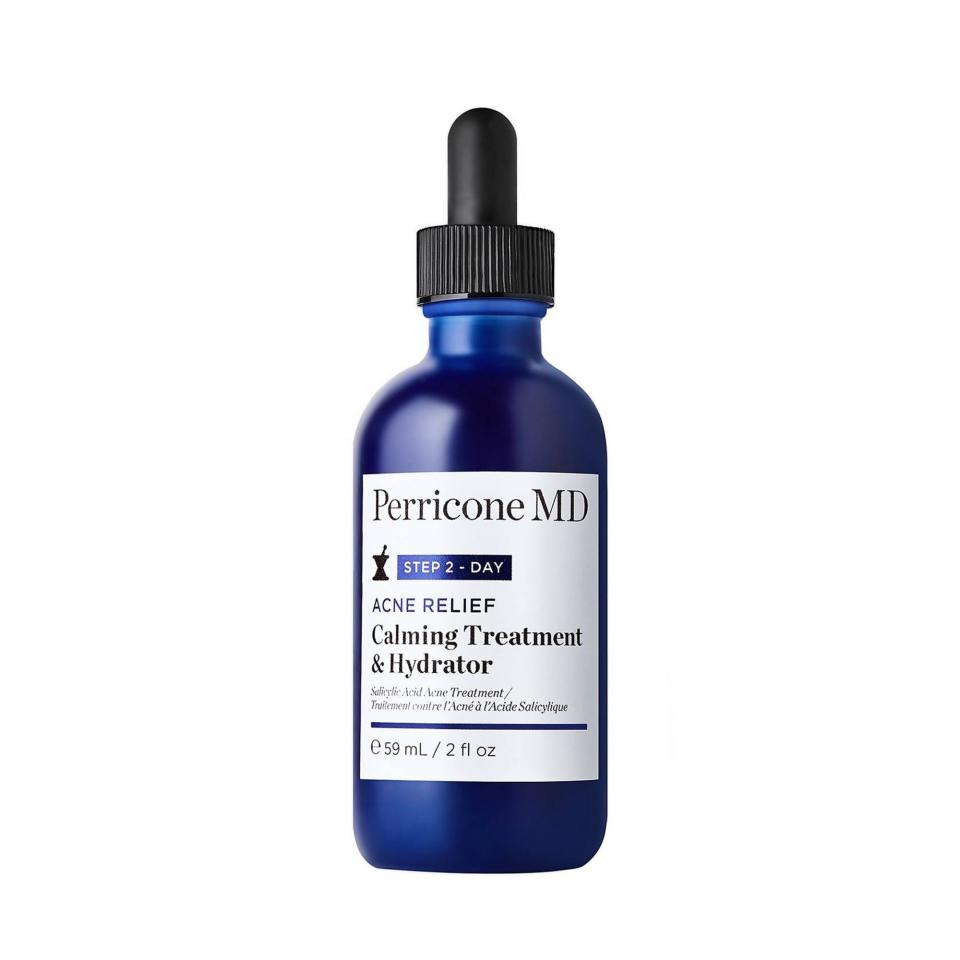Is Succinic Acid the Acne-Fighting Ingredient the World's Been Waiting For?

Getty Images / Dmitry Bayer / EyeEm
In the world of blemish-busting ingredients, three major players get seemingly all of the attention: salicylic acid, benzoyl peroxide, and retinoids. And while these guys are deserving of the hype, there's another buzzy active known as succinic acid that you need, no must, know about: succinic acid. As of publication, the hashtag #succinicacid has garnered more than 126 million (!!) views on TikTok, and it's the star of the show in a number of new skin-clearing products. By all accounts, it certainly seems like succinic acid is something worth knowing and using. Here, top dermatologists share what makes the ingredient so special. Read on to learn all about what succinic acid is, what it does, and why it might be worth incorporating into your skin-care routine.
What Is Succinic Acid?
Fun fact: Succinic acid isn't just a trending topical, it's also something you're likely ingesting on the regular. "Succinic acid is a naturally-occurring acid found in foods such as broccoli, beets, sugar cane, rhubarb, asparagus, apple cider vinegar, and sauerkraut," explains Robyn Gmyrek, M.D., a board-certified dermatologist at Union Derm in New York City. So how does it go from your plate to your face? "It was originally distilled from amber, but this process is very expensive, so it's now mostly derived from vegetable sources," says Dr. Gmyrek.
Don't let the word "acid" fool you, though: Unlike alpha- or beta-hydroxy acids, succinic acid doesn't have any chemical exfoliating properties, according to Alan J. Parks, M.D., a board-certified dermatologist in Columbus, Ohio, and the founder of DermWarehouse. Instead, the compound has two primary mechanisms of action: It's both antimicrobial and anti-inflammatory.
Benefits of Succinic Acid
Given that acne is the product of a combination of both bacteria and inflammation in the skin (among other things — genetics, hormones — as well), it makes sense that succinic acid would be beneficial for acne sufferers, says Dr. Parks. Similarly, thanks to its anti-inflammatory prowess, succinic acid can also be particularly helpful for treating inflammatory skin conditions such as eczema and psoriasis. (Related: The Best Psoriasis Shampoo That Won't Backfire On You)
But why stop there? In addition to its knack for busting bacteria and reducing inflammation, the ingredient can also offer some anti-aging effects. "Succinic acid aids in cellular renewal, promoting the production of elastin and helping firm the skin," explains Dr. Parks. (ICYDK, elastin is responsible for retaining your skin's elasticity and firmness.) And because it's similar in structure to your skin's own lipids, succinic acid can also help balance out oil or sebum production — a coveted perk for anyone with oily or acne-prone skin. Similarly, because it's a water-soluble molecule, succinic acid is more easily absorbed into the skin and can act as a pretty effective hydrator, says Dr. Parks. (BTW, should you also be taking probiotics for acne?)
However, there's a lack of scientific evidence to back up all of these amazing claims, particularly when it comes to testing the topical use of succinic acid in humans, adds Dr. Gmyrek. "In animal and laboratory studies, succinic acid was shown to have antibacterial activity against the bacteria involved in acne, as well as have antioxidant activity and possibly decrease collagen degradation, which may have implications for its use as an anti-aging product," she says. But, in short, the scientific data on this ingredient is limited, particularly as it pertains to its hydrating and oil-balancing properties, she cautions.
Who Should Use Succinic Acid?
While it doesn't have the same extensive, scientifically-backed track record of other acne-fighting ingredients such as retinoids and benzoyl peroxide, that doesn't mean succinic acid isn't worth trying. That is, of course, unless you have an allergy to sugar cane or amber, as the ingredient may be derived from these sources, notes Dr. Parks.
Otherwise, you should be okay to give the ingredient a go. Plus, succinic acid doesn't cause dryness or irritation, he says. And because of its gentle nature, "those with super sensitive skin who have acne and can't use benzoyl peroxide or retinoids could consider using succinic acid since it might be less irritating," says Dr. Gmyrek. (See also: The Gentle Approach to Treating Stubborn Breakouts)
Folks with acne-prone skin might also be pleased to learn that succinic acid works well in tandem with other breakout-targeted products. "Combining it with salicylic acid would be synergistic because the succinic acid can kill the bacteria and offer anti-inflammatory effects, while the salicylic acid can exfoliate dead skin cells," explains Dr. Gmyrek. (Reminder: A build-up of dead skin cells, among other factors, can contribute to breakouts.)
The Best Succinic Acid Products
You're more likely to find succinic acid in serums or more lightweight lotions because of it being water-soluble, which should always be applied before any thicker or oilier moisturizers that could inhibit succinic acid's penetration and efficacy, advises Dr. Gmyrek. As far as how often to use it, follow the directions of the product you pick — some can be used daily while others that pair succinic acid with stronger ingredients, may need to be used more sparingly.
Perricone MD Acne Relief Maximum Strength Spot Gel
"This spot treatment clears breakouts fast, without causing the typical dryness and flaking that many others can," says Dr. Parks of one of his picks. "Succinic acid kills acne-causing bacteria, while salicylic acid unclogs pores to prevent congestion."
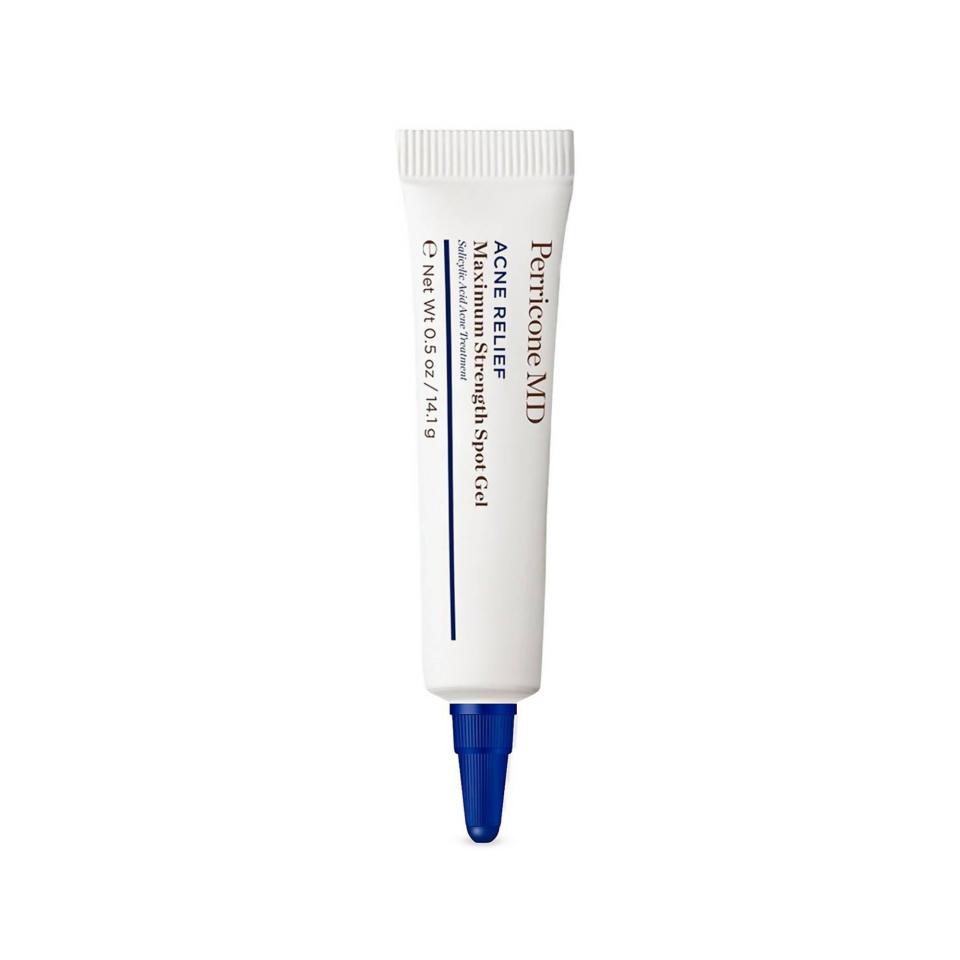
The Inkey List Succinic Acid Blemish Treatment
Spend enough time scrolling through TikTok and you're sure to find a collection of clips all featuring this budget-friendly product. "I'm not fully convinced of the effectiveness of succinic acid, but if paired with salicylic acid [such as in this formula], it should prove beneficial for helping with breakouts," says Dr. Gymrek. And, let's be honest, it's hard to beat the price. (Related: These Hair Growth Treatments Are All Over TikTok — Are They Worth Trying?)
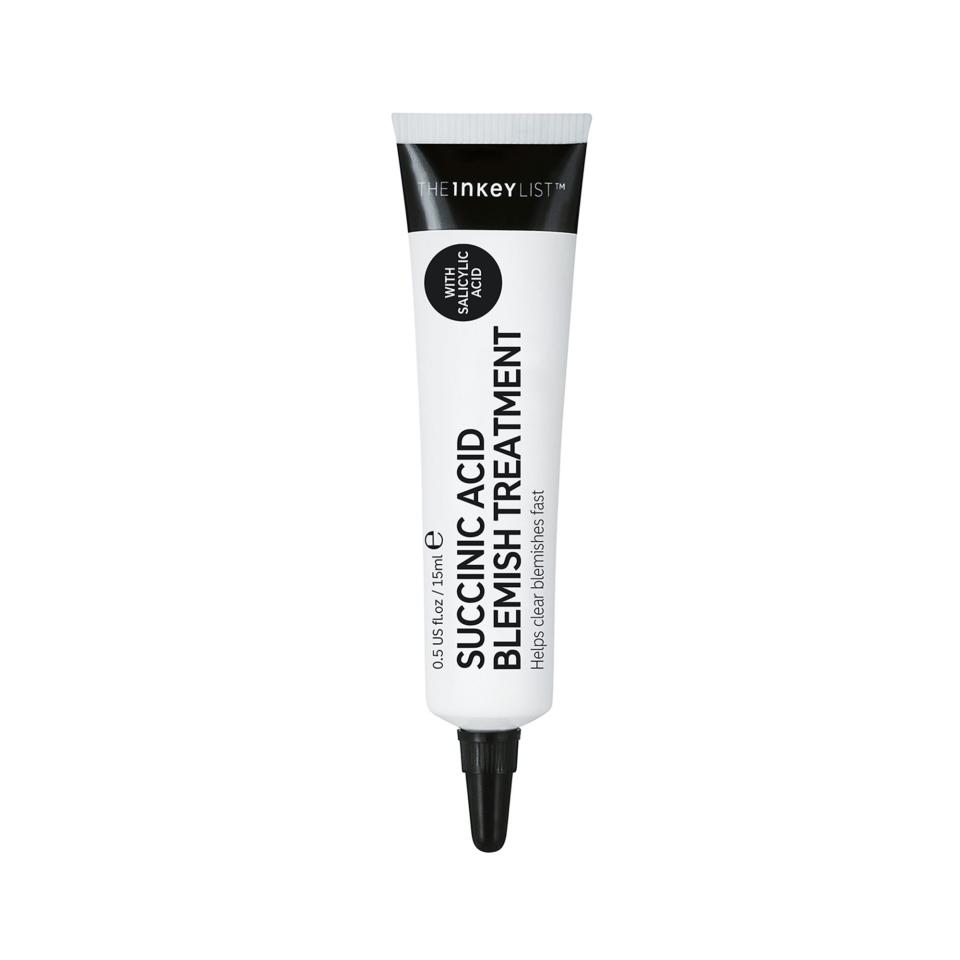
Barefaced Glow Peel Pads
Succinic acid teams up with glycolic acid and a mild retinoid in these easy-to-use pads, which are both exfoliating and hydrating, says Dr. Gmyrek. Designed to act like an at-home chemical peel, they might be a bit harsher than other succinic acid products. So, start by using them weekly and gradually work your way up to three times per week.
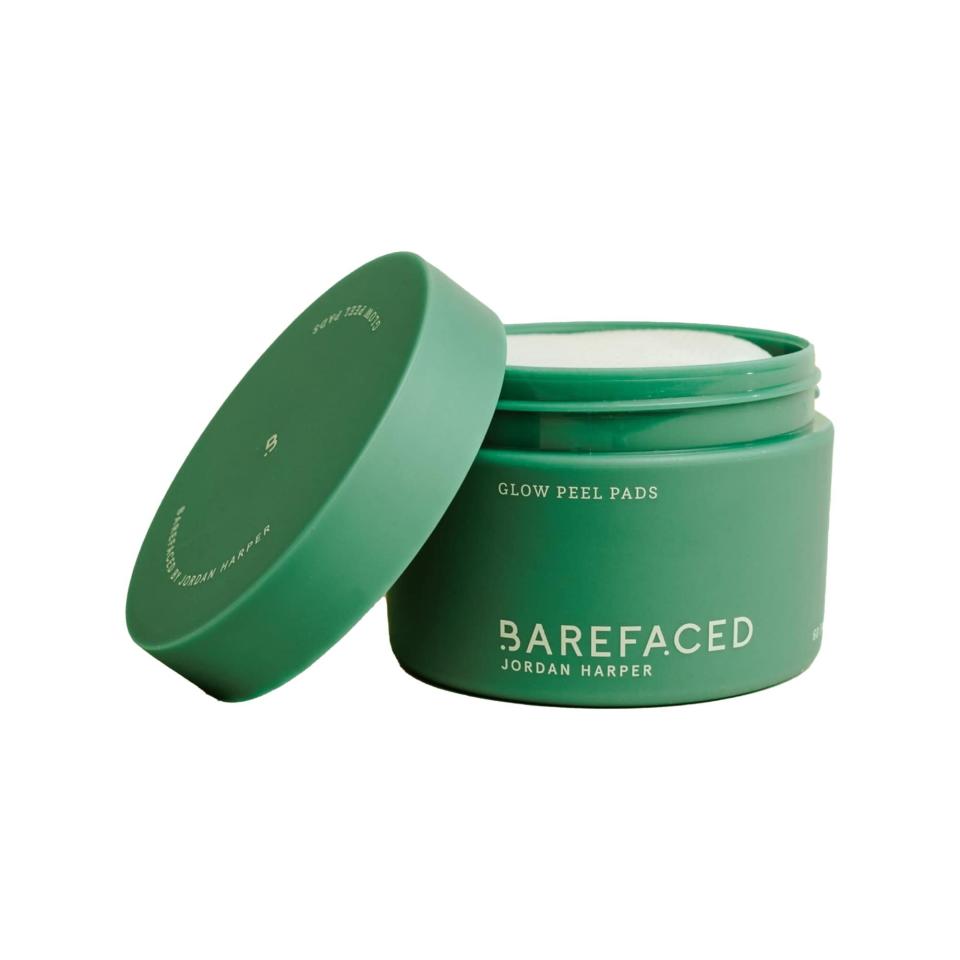
Dermalogica Awaken Peptide Eye Gel
Given that it may have anti-aging benefits, succinic acid isn't just found in acne products. This eye cream combines the gentle active with caffeine and peptides to combat puffiness as well as fine lines and wrinkles, says Dr. Parks. "Succinic acid is the perfect ingredient to use around the delicate eye area since it's non-drying and non-irritating." (Related: Exactly How to Apply Eye Cream, According to Dermatologists.)
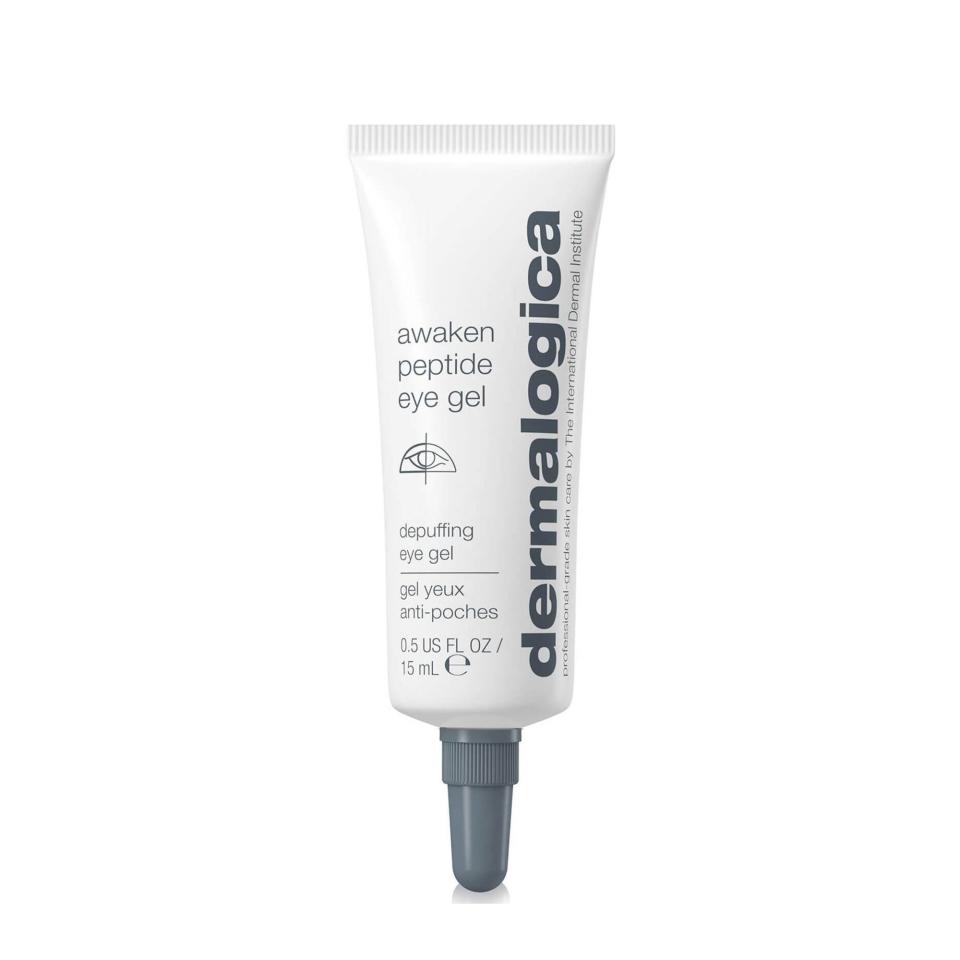
Elemis Pro-Collagen Energising Marine Cleanser
"This has succinic acid, as well as lactic acid [a type of AHA] to gently exfoliate," says Dr. Gmryek of another one of her recommendations. She also lauds it for the addition of hydrating glycerin and ferulic acid, a potent antioxidant. FYI, this can also be used daily or twice daily depending on your usual skin-cleansing routine.
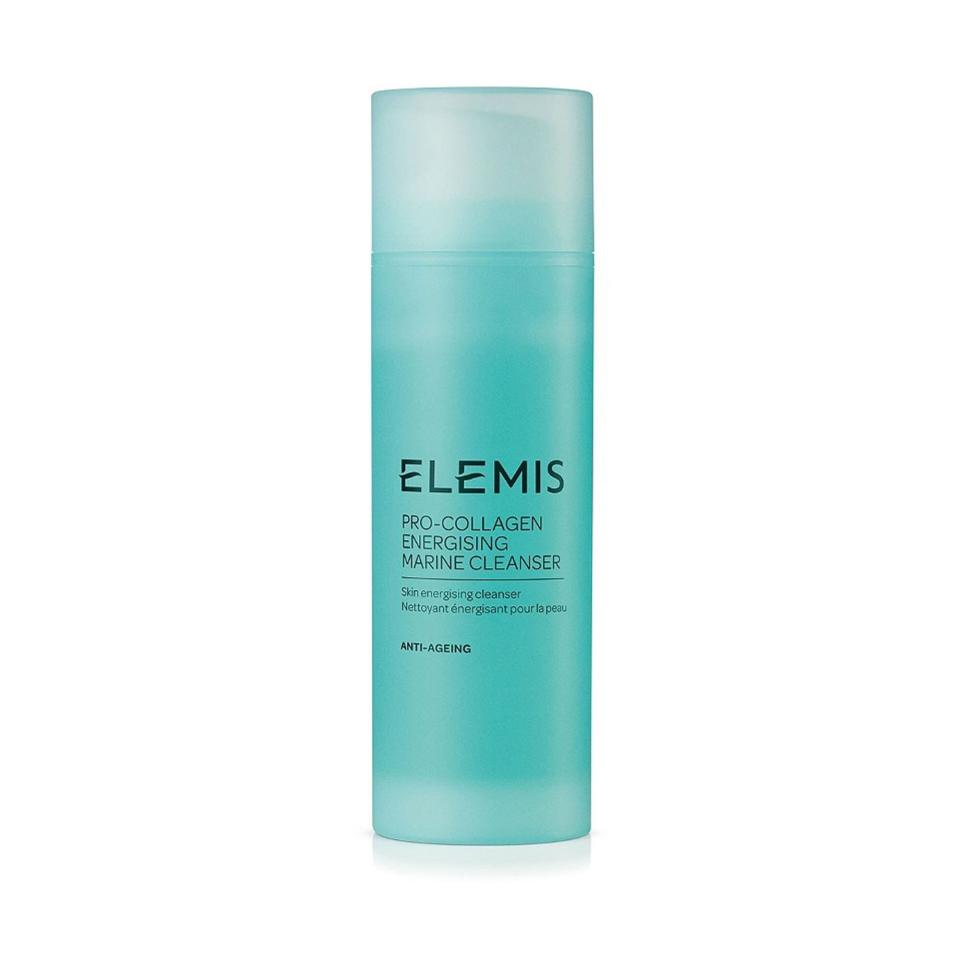
Perricone MD Acne Relief Calming Treatment & Hydrator
A lightweight treatment lotion, this formula, "gently calms, soothes, and balances skin suffering from redness, irritation, and breakouts," says Dr. Parks. It contains succinic acid, plus exfoliating lactic acid and hydrating squalane — all of which work together to leave your complexion smoother and clearer.
